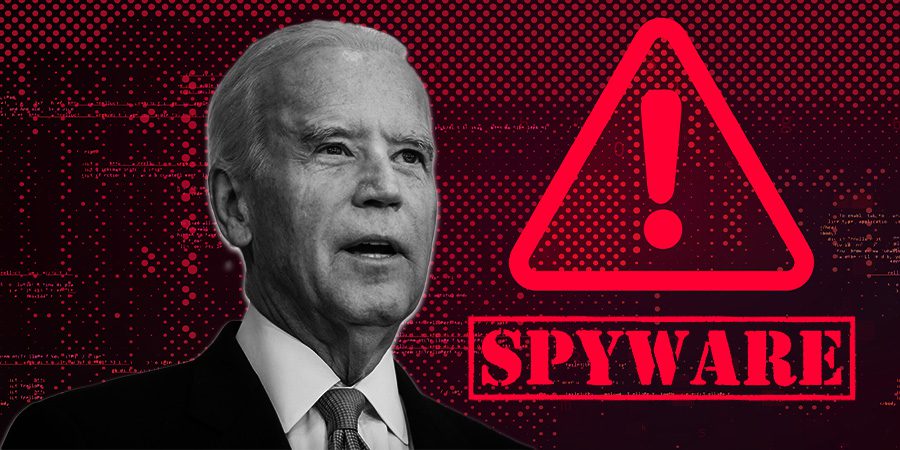In this article, we’ll explore the motivations behind President Biden’s recent executive order aimed at curbing the U.S. government’s use of commercial spyware.
We will also delve into the exceptions and certification process, the impact on spyware companies, the role of Congress and U.S. intelligence agencies, notable examples of commercial spyware misuse, and the broader implications of this landmark decision.
Key Takeaways:
- President Biden has signed an executive order restricting the U.S. government’s use of commercial spyware, in response to global concerns over the misuse of such tools.
- The order allows for exceptions, requiring agency heads to certify that the commercial program in question doesn’t pose a significant security risk.
- The White House will not publish a list of banned programs as part of the executive order.
- The U.S. aims to set new global standards for the spyware industry, utilizing its purchasing power to push the industry to improve.
- Congress has previously required U.S. intelligence agencies to investigate foreign use of spyware.
- Commercial spyware has been used to target journalists, human rights activists, and dissidents around the world, leading to concerns over the potential abuse of these powerful tools.
- The executive order applies to both domestic and foreign-made spyware, aiming to prevent companies from relocating to the U.S. to bypass restrictions.
- The Biden administration is also encouraging other democracies to take similar steps against spyware misuse.
The Executive Order: A Response to Growing Concerns
President Biden’s executive order comes at a time when concerns about commercial spyware have reached a boiling point.
With an increasing number of human rights activists, journalists, and dissidents being targeted by governments around the world, the need for action has become more pressing than ever.
The executive order is a direct response to these concerns and aims to curtail the misuse of powerful surveillance tools that have the potential to harm innocent individuals.
Exceptions and Certification Process
The executive order is not a blanket ban on the use of commercial spyware. It allows for certain exceptions, provided that the head of the U.S. agency using the spyware can certify that the program doesn’t pose a significant security risk.
To determine the level of security risk, factors such as whether a foreign actor has used the program to monitor U.S. citizens without legal authorization or surveil human rights activists will be considered.
This certification process is intended to strike a balance between the need for surveillance in certain situations and the protection of individual rights.
The Impact on Spyware Companies
The executive order is expected to have a significant impact on the spyware industry. By restricting the U.S. government’s use of commercial spyware, the Biden administration is effectively leveraging its purchasing power to push companies to improve their practices. The U.S. has long been seen as a lucrative market for spyware companies, and losing access to it may force these companies to reconsider their business strategies and prioritize ethical practices.
Congress and the Role of U.S. Intelligence Agencies
Congress has played a key role in raising awareness about the dangers of commercial spyware.
Last year, it required U.S. intelligence agencies to investigate foreign use of spyware and granted the Office of the Director of National Intelligence the authority to ban any agency from using commercial programs.
This executive order builds on these efforts, further emphasizing the need for transparency and oversight when it comes to the use of spyware by government agencies.
Notable Examples of Commercial Spyware Misuse
There have been numerous instances where commercial spyware has been misused, leading to significant concerns about its potential for abuse.
One such example is the Pegasus software developed by Israel’s NSO Group, which was used to target over 1,000 individuals across 50 countries, including more than 180 journalists, 600 politicians, and 85 human rights activists.
Another example is the alleged use of spyware to target the family of Paul Rusesabagina, who saved more than 1,200 lives during the Rwandan genocide.
These examples underscore the need for strict regulations to prevent the misuse of commercial spyware.
The Broader Implications of the Executive Order
The executive order’s wider implications extend beyond the United States.
By taking a firm stance against the misuse of commercial spyware, the Biden administration is sending a strong message to the global community.
This move encourages other democracies to adopt similar measures and hold spyware companies accountable for their actions.
The order also highlights the importance of international cooperation in tackling the challenges posed by powerful surveillance tools.
Conclusion
President Biden’s executive order marks a significant step towards addressing the pressing issue of commercial spyware misuse.
By establishing restrictions on the U.S. government’s use of these tools and advocating for global cooperation, the Biden administration is striving to create a safer and more equitable world.
This decisive action not only aims to protect the rights of journalists, human rights activists, and dissidents, but also sets a precedent for other nations to follow in addressing the potential dangers posed by commercial spyware.
However, the success of this executive order ultimately hinges on its implementation and the willingness of other countries to join the fight against the abuse of powerful surveillance technologies.
As the international community continues to grapple with the ethical implications of these tools, the executive order serves as a crucial reminder of the need for vigilance, transparency, and cooperation in the pursuit of a more secure global landscape.
 Sections of this topic
Sections of this topic
















